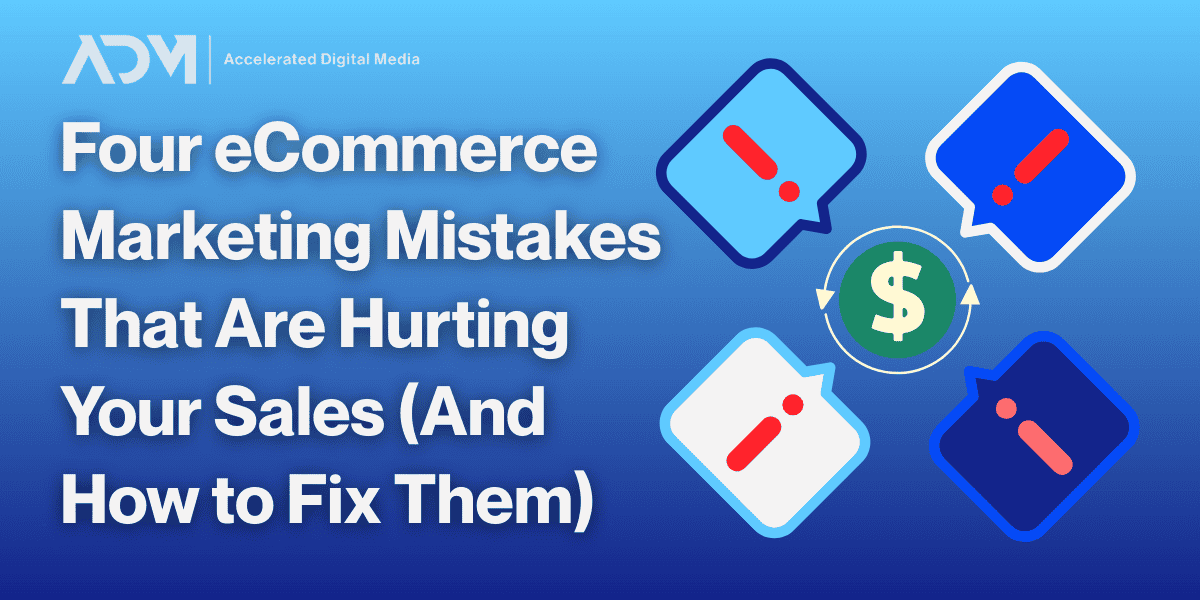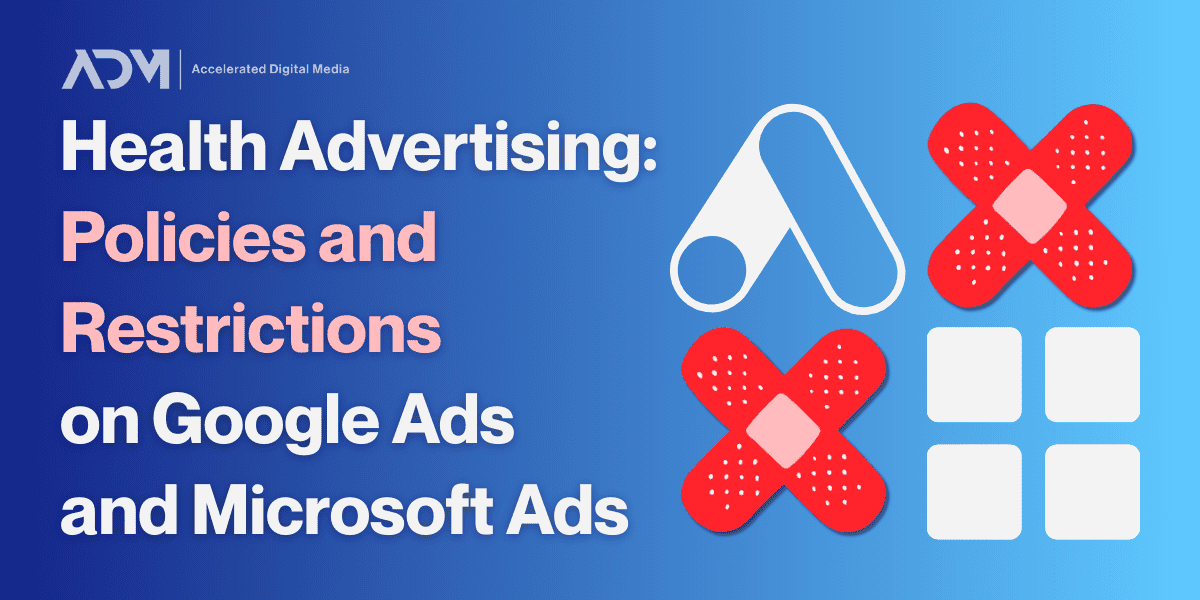What is ECPC?
Enhanced cost-per-click, or ECPC, is a Google Ads bidding method that combines manual bidding with lower-powered automation to drive more conversions. Think of it as a happy medium between manual keyword bidding and true Machine Learning. ECPC will increase and decrease keyword bids automatically to help drive conversions or revenue while it keeps the average CPC within the max CPC limit.
With the power of Machine Learning on their side, some marketers may be tempted to set up a Google Ads account and let it run on its own. Google’s collection of automated bidding strategies makes it easy to adopt a “set it and forget it” approach. Tempting as that may be, our team tested the “set it and forget it” strategy against ECPC and found that relying solely on automated strategies can be a costly mistake for brand keywords, especially compared to the advantages offered by ECPC.
What are Google’s Smart Bidding Strategies?
The Google Recommendations tab often suggests switching current campaigns to automated bidding strategies such as Maximize Conversions, Target CPA, and Target ROAS to improve performance. While these strategies make sense for non-brand campaigns that need multiple signals to reach a desired outcome or goal, they aren’t always well-suited for brand campaigns.
We’ve said before that Google’s Smart Bidding strategies are an effective way to scale your eCommerce company’s search program. But not all smart bidding strategies are created equal. It takes a balance between manual management and automation to have the most success. That is where ECPC bidding comes in.
An ADM Best Practice
Accelerated Digital Media’s best practice is to leverage an ECPC bidding strategy for brand campaigns, capping branded terms at an efficient cost-per-click to ensure cost-effective traffic from these terms. Enhanced cost-per-click is preferred over manual cost-per-click bidding because it implements a semi-automated bidding strategy focused on driving conversions while maintaining a ceiling on individual cost-per-clicks.
How did this become an ADM best practice? We put ECPC bidding toe-to-toe with Google’s automated bidding strategies in an A/B testing environment. The strategy was tested across a variety of clients from different industries with varying KPIs, and the results spoke for themselves.
The Tests We Ran
ADM set out to test Google’s array of automated bidding strategies against ECPC. Our Client Growth Team executed three rounds of tests in order to compare results. The three automatic bidding strategies that were put to the test were Maximize Conversion Value, Maximize Conversions, and Target Impression Share.
ECPC vs. Maximize Conversion Value
The first automated bidding strategy we tested against ECPC was Maximize Conversion Value.
ADM ran a 30-day test on behalf of our eCommerce client Fable, a company specializing in dinnerware, flatware, and glassware. Fable’s goal is to drive a strong return on ad spend (ROAS) while maintaining the most efficient cost-per-acquisition (CPA). The experiment tested both their exact and phrase brand keywords, splitting traffic 50/50, with the only difference being the applied bidding strategy.
The four metrics that were measured were conversions, conversion value, return on ad spend (ROAS), and cost-per-acquisition (CPA). Over a 30-day period, it became clear that the ECPC strategy was significantly outperforming Maximize Conversion Value on all four metrics.
When measured against ECPC, the Maximize Conversion Value strategy yielded 20% fewer purchases at a 20% lower conversion value. This was coupled with a 46% lower ROAS and an 87% higher CPA.
ECPC vs. Maximize Conversions
The next bidding strategy we put to the test was Maximize Conversions.
ADM ran a 12-day test on behalf of NOCD, a lead-gen client specializing in obsessive-compulsive disorder (OCD) treatment and therapy. NOCD’s goal is to drive volume of lead form submissions within a target CPA.
The experiment once again tested exact match brand keywords with traffic split 50/50, the only difference being the applied bidding strategy. Again, the ECPC strategy was far more successful than Google’s automated bidding strategy. This time, the metrics that were measured were conversions, cost-per-conversion, and cost-per-click (CPC).
In the case of NOCD, a conversion is a lead generated. The Maximize Conversion bidding strategy led to 32% fewer conversions compared to ECPC. cost-per-conversion was 57% higher and cost-per-click was 30% higher. It was another sweep across the board for the ECPC strategy.
ECPC vs. Target Impression Share
The final automated bidding strategy that we tested against ECPC was Target Impression Share.
This time, ADM ran a 30-day test on behalf of Decked, an eCommerce client specializing in truck storage. Decked’s goal is to fill all parts of their marketing funnel by driving lead form conversions to final purchases. The experiment tested their exact match brand keywords splitting traffic 50/50, with the only difference being the applied bidding strategy.
Lead Form Conversions, add-to-cart actions, and transactions were measured in this test.
Though outcomes were closer than the other bidding strategies tested, the results still favored ECPC. Over a 30-day period, the Target Impression Share campaign proved to be less efficient.
Under the Target Impression Share automated strategy, 24% fewer lead forms were filled out, 17% fewer items were added to cart, and 20% fewer transactions were executed. Again, ECPC proved to be more efficient.
Our Conclusion
As our testing showed, “set it and forget it” is not a mantra that should be applied to Google Ads in any form but especially within brand campaigns. While not without their own merit, Google’s automated bidding strategies are significantly more effective when combined with manual strategies.
An ECPC bidding strategy for brand campaigns maintains stronger performance compared to the Maximize Conversion Value, Maximize Conversions, and Target Impression Share automated bidding strategies. In the use cases above, ECPC consistently drove the most efficient performance with a higher volume of sales or leads.
For lead-gen and eCommerce clients, ECPC is an extremely impactful strategy for brand campaigns when implemented and executed correctly.
Founded to provide transparent, fair-cost partnerships, ADM relies upon its expertise and history of success to help clients of all shapes and sizes navigate today’s digital media ecosystem.




